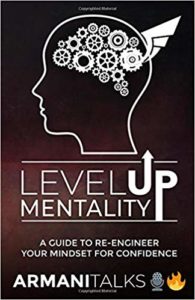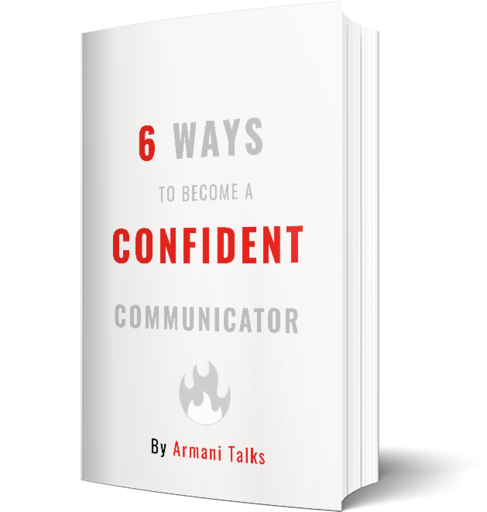What Is an Anecdote and How Do You Create One?
An anecdote is a personal story.
The purpose of the story depends.
Some people share anecdotes to shed light on their lives.
Others share anecdotes to entertain.
And others share anecdotes to educate while pretending to entertain.
The reason anecdotes are powerful is because of 2 reasons:
- It uses your firsthand experiences.
- It makes ambiguous concepts real.
First, let’s focus on the main ingredient of anecdotes:
- Firsthand experiences.
Examined Experiences
Socrates once said:
An unexamined life is not worth living.
A lot of people go through experiences, but they never take the time to recall those experiences and make sense of them.
Due to never recalling their experiences, they live life on autopilot mode.
There used to be a professional wrestler named Maven.
In the WWE, he was a flop.
Around 2003, he was let go from the company.
I didn’t hear his name for years.
Until recently, that changed.
Recently, I saw that Maven made a YouTube channel highlighting his experiences from the WWE.
He shares stories about how he got fired, how he purchased steroids, and what it was like working with well-known wrestlers.
A few weeks ago, Maven had 20,000 subscribers.
As of writing this, he has a staggering 100,000 subscribers!!
Maven is examining his experiences and making sense of them.
Once he makes sense of his experiences, he creates content.
The content he creates are simply anecdotes that shed light on the wrestling business.
How to Create Anecdotes
Imagine that I give a guy all the data of Air BnB’s in Chicago.
There’s a problem though.
This guy never wants to go to Chicago.
He also hates Air BnBs.
Does the data have much use then?
Nah.
But imagine that his boss comes to his office and says:
‘Hey, I need your help. I need to take my wife to Chicago for our anniversary, but I have no clue where to stay. Can you help me?’
Suddenly, the same data has a lot of use.
We gain useful value from our data (first-hand experiences) by giving ourselves a command.
Example of a command:
- Recall a moment you felt proud.
If you’re 30 years old…
Then your mind will go through your 30 years’ worth of experiences and output a few key moments:
- The first time you kissed a girl.
- When you got your master’s degree.
- Got promoted at work.
From there, choose one of the outputs and issue another command.
‘Share a 6-minute talk of the first time you kissed a girl.’
This command forces you to add details to an ambiguous memory.
Adding details to an ambiguous memory is how you create an anecdote!
Relevant Information
A long time ago, I had to do a project on night vision.
I had to make a video on how electromagnetic waves led to night vision technology.
Doing this project was torture.
It was SOOO boring.
I submitted the project a decade ago.
Recently, I was driving down this dark ass road.
Before driving down this dark road, I saw a sign that told me to watch out for deer.
Even after turning on my lights, I could barely see anything…
What if I hit a deer?
That’s when I thought about that night vision project from a few years back.
I recall how plenty of cars install windshields that measure infrared rays (heat).
By contrasting the heat that is being generated from your environment, the windshield allows you to see where there is life on the road.
No matter how dark it is.
Suddenly, the ambiguous concept of night vision came to life.
It’s because I could tie the electromagnetic waves subject to something that I was going through.
Personal information allows things to make sense.
Anecdotes don’t only have to be used for aimlessly talking about your life.
They can also be used to get smarter and make others smarter.
Using Anecdotes to Get Smarter
Here’s an exercise.
- Find a topic that you know well that others don’t.
- Make this topic relatable.
I’ll give you an example.
I happen to know a lot about information systems because I studied that field in school and it was my career.
When I say “information systems”, most people have a glazed-over look in their eyes.
How can I make this topic relatable to them?
Armani: ‘Hey, you know what I noticed?’
Student: What?
Armani: ‘I noticed my dad, and most of my friends’ dads, all have this huge drawer in their room. It’s one of these cabinets with a bunch of drawers. Have you seen this at your dad’s place?’

Student: Wow yes, my dad has the same one!
Armani: ‘Well, this is an information system.’
Student: It is?
Armani: ‘Yep! I recall one time helping my dad organize his file cabinet. Personal information goes in the first 2 drawers. Business information goes into the 3rd and 4th drawers. A system that organizes information for a purpose is an information system!’
I’m turning an unrelatable concept into a relatable one.
I connected the “information system” phrase to the cabinets that most of our dads have.
This anecdote uses my experience along with my student’s experience to deliver a learning moment.
Processed Experience = Story
A lot of great writers write about characters from their own life.
But to avoid getting caught, they slap different names on the characters from their life.
If the author has a cousin named Billy who blacks out in every family reunion.
Then the author will create a character named Tom who blacks out in every family reunion.
Plausible deniability.
But the author will always know that Billy and Tom are the same person.
Anecdotes are grounded in reality.
A lot of stories are grounded in anecdotes.
You don’t need to learn how to be a storyteller.
You just need to examine your life more, and add details to the ambiguous memories.
Just like that, you’ll have endless tales.
For more exclusive content on communication skills be sure to join the ArmaniTalks Free daily newsletter.






